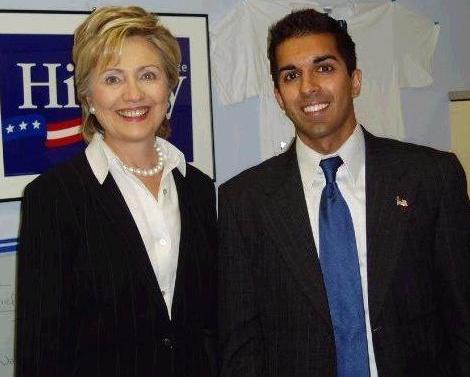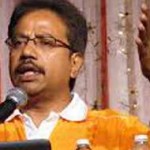Category: Politics
-
India-US step up cooperation to combat terrorism
•
On his maiden visit to India in his current capacity, the US Secretary of State Rex Tillerson met Prime Minister Narendra Modi and the two discussed stepping up effective cooperation to combat terrorism in all its forms and promoting regional stability and security. The India Prime Minister noted the firm…
-
MP Rajen Prasad retires
•
New Zealand Labour Party’s Immigration spokesperson Rajen Prasad has declared his retirement from active politics as he says he is not seeking re-nomination for another term in Parliament at the next election scheduled for later this year. “I have approached my professional and public life over the last 20 years,…
-
India records higher voter turnout than 2009
•
It is believed that nearly 65% of the eligible electors cast their ballot across the 12 states of India after Phase 5 of voting. India’s election commission hasn’t released official figures of voter turnout yet. The highest turnout of 81.57% was recorded in four constituencies in West Bengal, which has…
-

Kejriwal vs Modi: AAP opens war room in Varanasi
•
The Aam Aadmi Party (AAP) on Wednesday opened its war room in Varanasi’s Mahmoorganj area, opening up a new front in the high-profile battle between party supremo Arvind Kejriwal and BJP prime ministerial candidate Narendra Modi. As part of its first activity, the AAP cited its own survey covering 80,000…
-

Indian students in US launch website on Lok Sabha elections
•
The ‘FiveFortyFive.com’ is a “single-subject website” focusing on the Indian general elections founded by six Columbia journalism school students.
-
Rahul Gandhi’s interview draws funny reaction
•
Rahul Gandhi, vice-president of India’s Congress Party, has caused a lot of reaction following his interview to a leading television channel. According to reports, the Congress had arranged the interview of the possible prime ministerial candidate with NDTV. However, the plans were later changed in favour of another television channel,…
-
Shashi Tharoor’s wife Sunanda found dead in Delhi
•
Indian Union Minister Shashi Tharoor’s wife, Sunanda Pushkar, was found dead in a room at The Leela hotel in New Delhi. The cause of her death is unclear at this stage, but the police are not ruling out suicide. The Delhi Police investigations team have taken the body for post…
-
Is Pranab Mukherjee the right man?
•
Who will be the next president of India? Pranab Mukherjee is leading the race with the UPA nominating the current Indian finance minister as its candidate to take over presidency from the outgoing president, Pratibha Patil, whose term comes to an end next month. In the meantime, A P J…
-

Auckland leaders oppose outsourcing at port
•
As many as 28 Auckland local board members from 10 boards have joined hands to call for Ports of Auckland to return to good faith bargaining and drop plans to outsource jobs at the port. Ports of Auckland Ltd is a council-owned company. We support its operational independence, but the…
-
Some criticism of Hazare acceptable – Hong Kong NGO
•
Many of the criticisms of the Anna Hazare movement are acceptable, says the Asian Human Rights Commission. “There is indeed good rationale in the allegation that the Jan Lokpal Bill is not the product of a wider consultation,” says the Hong Kong-based non-governmental organisation that monitors human rights in Asia.…
-
Sonia’s letter to Anna Hazare
•
In reply to Anna Hazare’s letter to Sonia Gandhi, the Congress Party leader said she does not “support or encourage politics of smear campaign”. Sonia also reiterated that she believes “there is an urgent necessity to combat graft and corruption.” Reassuring Hazare, Sonia wrote: “You should have no doubt of my commitment…
-
NRIs vow to fight corruption – the Gandhi way
•
Mahatma Gandhi is probably the most famous NRI (non-resident Indian) that India has ever seen. It is no surprise then that a group of NRIs in the US have decided to take a leaf out of Gandhi’s book and wage a war on an unfair system in a similar fashion.…
-
Investing in women is the highest-return venture – Sonia Gandhi
•
Speaking at the Commonwealth Lecture in London, Sonia Gandhi called for women’s voices and concerns to be heard in the global climate change debate, to “help the world find a more sustainable and less consumerist path to development”. “Among all the challenges facing humankind in the twenty-first century, few are…
-

Sam Arora to support same-sex marriage
•
Sam Arora has now changed his mind. The Maryland Delegate who was a strong suppoert of marriage equality is expressing his concern for the same-sex marriage bill. “I have heard from constituents, friends, and advocates from across the spectrum of views and have thought about the issue of same-sex marriage extensively,”…


